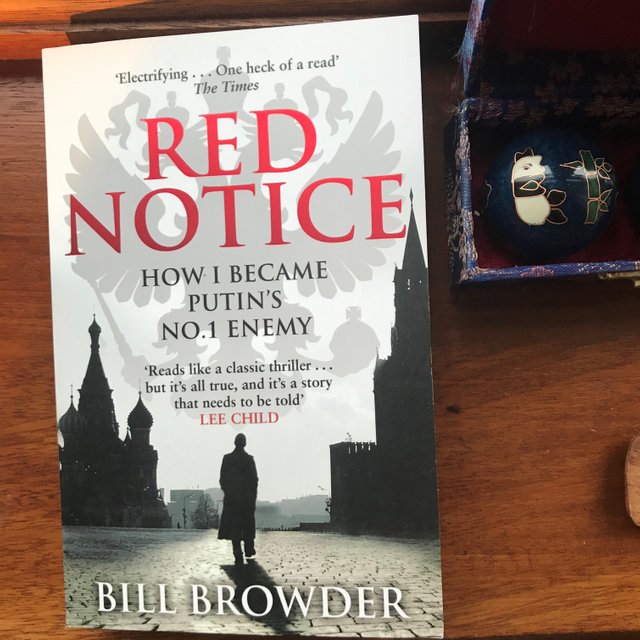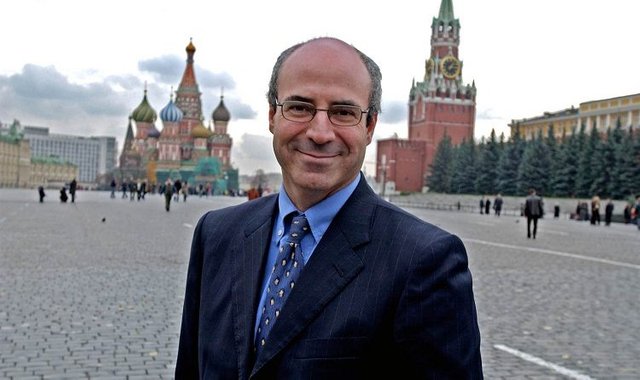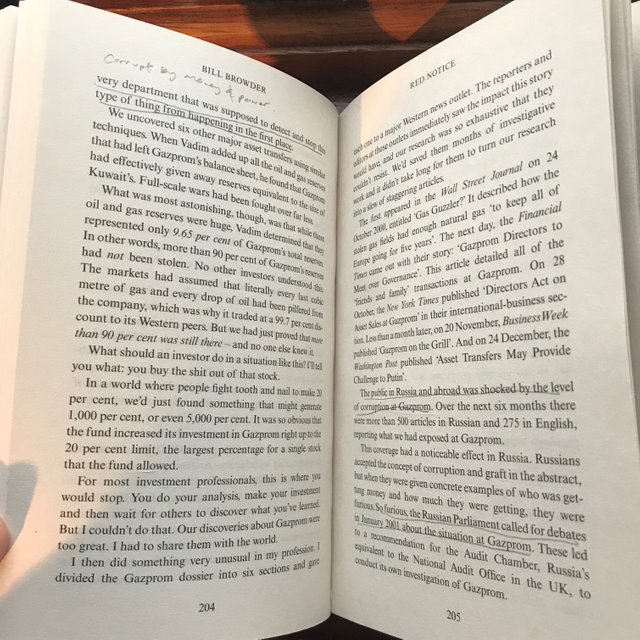Red Notice, How I became putins NO.1 Enemy - Bookclub #51

About the Author
Bill Browder is the founder and CEO of Hermitage Capital Management, which was the investment adviser to the largest foreign investment fund in Russia until 2005, when Bill was denied entry to the country and declared a “threat to national security” as a result of his battle against corporate corruption.
Following his expulsion, the Russian authorities raided his offices, seized Hermitage Fund’s investment companies and used them to steal $230 million of taxes that the companies had previously paid. When Browder’s lawyer, Sergei Magnitsky, investigated the crime, he was arrested by the same officers he implicated, tortured for 358 days, and killed in custody at the age of 37 in November 2009.
Since then, Browder has spent the last 5 years fighting for justice for Mr. Magnitsky. The Russian government exonerated and even promoted some of the officials involved so Browder took the case to America, where his campaigning led to the US Congress adopting the ‘Sergei Magnitsky Rule of Law Accountability Act’ in 2012, which imposed visa sanctions and asset freezes on those involved in the detention, ill-treatment and death of Sergei Magnitsky (as well as in other human rights abuses). This law was the first time the US sanctioned Russia in 35 years and became the model for all subsequent US sanctions against Russia. Browder is currently working to have similar legislation passed in Magnitsky’s name across the European Union.

http://www.billbrowder.com/bio
A little bit about the book
Red notice is a thrilling read that begins with some history about the author, his family and what motivated him to go to Russia in the first place. Eventually, he went on to become the largest foreign investor in Russia and eventually, without really understanding what he was getting himself into, got involved with trying to take down the most powerful and richest oligarchs in the country.
It is a book that is very eye-opening to the atrocities to what happens in a different part of the world, where different cultures collide and ideals are completely different. What is apparent from the book is that Russia is sickeningly ridden with inequality and brutality that must leave anyone who lives in Russia living in constant and conscious fear of stepping out of line. We live in a very unjust world, where it is evident that certain parts are more unjust than others, and it becomes scary to think that in a place like Russia, innocent civilians of society get brutally tortured and murder just for standing up for what they believe is right. (Despite never actually going to Russia, I am making this assumption based on the reading I have done through books and various decentralised blog posts.)
I am more than aware that this post is almost stepping into the realm of policy, and I am conscious that some experiences and evidence may be overexaggerated but the evidence is enough for me to make these assumptions about a country I haven't been too. This isn't the first book I have encountered where I am worrisome about the presence of a tyrannical leader, in charge of a superpower of a country (that is only going to get stronger by profiting from climate change) - here's my review of: Tales of modern Russia, Peter Pomerantsev

However, without getting too political and human rightist (because this is a books review) it is important to note that this book has obviously struck a chord with me and I'd highly recommend anybody to read it.
I now have a new hero called Sergei Magnitsky who shown bravery and courage to have the mental self-discipline to stand up for what he believed to be right, for his country, his family and of course for himself. This to me is an act of complete and utter altruism, as he stood to what is right through being constantly beaten, refused medical care and mentally tortured whilst being wrongly held in numerous Russian prisons.
I quote Bill Browder:
Sergei Magnitsky was killed for his ideals. He was killed because he believed in the law. He was killed because he loved his people, and because he loved Russia. He was thirty-seven years old.
I do believe that a lot of good came about from this atrocity. With certain visa sanctions and asset freezes - it appears that this is one effective way to have global law in the 21st century.
How can we, as a collective species come to realise that the interests of the species and the world as a whole are far more important than the interests of individuals - and especially monetary interests? It saddens me to see corruption and suffering in countries that could have so much, and it is our duty as human beings to stand for what is right and to try to create a world of peace, for ourselves and everything that calls this planet home.
Highly recommend this book.
Rest in peace Sergei Magnitsky.
Have a great weekend!
The Bookclub
Ego is the Enemy, Ryan Holiday
The Wisdom Of Insecurity, Alan Watts
Tools of Titans, Tim Ferris
Homo-Deus, Yuval Noah Harari
Radical Acceptance, Tara Brach
Born a crime, Trevor Noah
How brands grow, Byron Sharp
Tales of modern Russia, Peter Pomerantsev
Stone Soup, Marcia Brown
How to get filthy rich in rising Asia, Mohsin Hamid
The Art of War, Sun Tzu
Why Bob Dylan Matters, Richard F. Thomas
On the Shortness of Life, Seneca
Not Fade Away - A short life well lived, Peter Barton
Blockchain Revolution, Alex and Don Tapscott
What I know for sure, Oprah Winfrey
Man's Search for Meaning, Viktor E. Frankl
Creativity Inc., Ed Catmull
Meditations, Marcus Aurelius
The Rational Optimist, Matt Ridley
What Makes Sammy Run? , Budd Schulberg
How to Develop Self-Confidence in Public Speaking, Dale Carnegie
How to Win Friends and Influence People, Dale Carnegie
As a Man Thinketh, James Allen
The Four Agreements, Don Miguel Ruiz
The Magic of Thinking Big, David J. Schwartz
The Great Philosophers, Edited by Ray Monk & Frederic Raphael
The Outsiders, William N. Thorndike
Invested, Danielle & Phil Town
The Last Hours of Ancient Sunlight, Thom Hartmann
The Obstacle is the Way, Ryan Holiday
Zen Flesh, Zen Bones, Paul Reps
The Prince, Niccolo Maciavelli
Think and Grow Rich, Napoleon Hill
Unshakeable, Tony Robbins
The War of Art, Steven Pressfield
Leonardo Da Vinci, Walter Issacson
Onwards, Howard Schultz
The Long and Short of It, John Kay
Prisoners of Geography, Tim Marshall
Total Recall, Arnold Schwarzenegger
Steve Jobs, Walter Issacson
Thus spoke Zarathustra, Freidrich Nietzche
The Everything Store, Brad Stone
Zero to One, Peter Thiel
Zen and the Art of Happiness. Chris Prentiss
The Lessons of History, Will and Ariel Durant
Living with a Seal, Jesse Itzler
The Innovators Dilemma, Clayton M. Christensen
Steppenwolf, Hermann Hesse